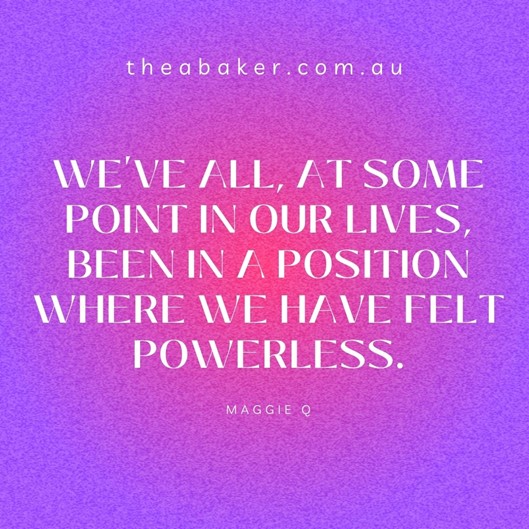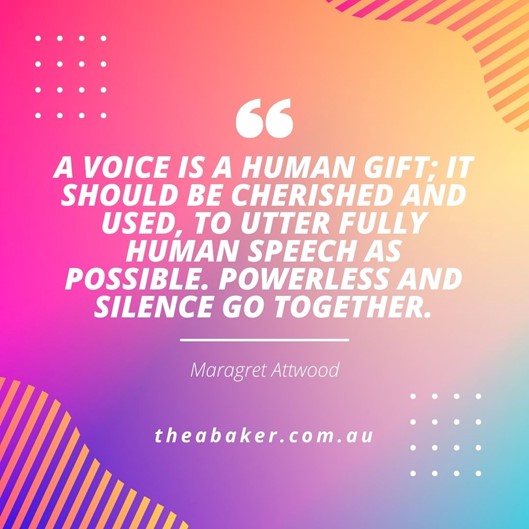Powerlessness
Powerlessness
With two years of pandemic uncertainty under our belts, along with the associated lockdowns, restrictions, financial insecurity, closed borders, grief and loss we have all been forced to tackle the unpleasant feelings that arise when we are largely powerless to change our circumstances. And then, just as we were starting to feel hopeful that we might finally be learning to ‘live with the virus’ we were hit with the news of Russia’s invasion of Ukraine this week. Oooof.
I’m not sure about you but it’s brought up an awful lot for me. I’m a history graduate and having completed my undergraduate studies in England, I have studied the World Wars numerous times. Even at 16 years old I felt a strong sense that we were being encouraged to understand the complexities of these wars in order that such horrors should never happen again. My paternal grandfather was a pacifist, whilst my maternal grandfather fought in World War Two. I heard many stories from my maternal grandmother of the bombings during the Blitz – she refused to go down the bomb shelter and sat under her kitchen table with her dog! Both of my parents were born straight after the war ended – true Boomers. This is very much a part of my story.
I also lived in England during the time of the Northern Ireland conflict, I remember vividly multiple bombings in parts of London – often placed in the bins of the underground stations – and the bombing of Warrington (a town in northern England). I am old enough to remember the Bosnian War and Kosovo conflict of the 1990’s. These wars were the backdrop of my late teens and early twenties and very much felt like they were happening on our doorstep. The irony is not lost on me that I now have the privilege to work with several clients whose families moved to Melbourne as refugees, fleeing these wars.
To be in Australia now whilst Europe is yet again facing deep division and an unravelling of all the fragile work that started with The Treaty of Versailles and continued with NATO is honestly heartbreaking. And I am yet again reminded of the understandable, yet frustrating, human reaction of feeling powerless to ‘do’ anything. Powerlessness can be described as an overwhelming feeling of helplessness or inadequacy in stressful situations, making us more susceptible to anxiety, stress and depression.
Psychological causes of powerlessness:
- Trauma: if we have experienced traumatic events in the past that have affected our trust and self-confidence, we have a reduced capacity to cope with stress. By definition trauma is a state of extreme helplessness. And the psychological imprint of trauma can become a permanent feature of our lives, as it rewires the brain to respond disproportionately to stress – freezing, panicking, or acting out in anger as we encounter reminders of the original trauma.
- Anxiety / avoidance: some of us learn from an early age to normalise our response to anxiety by avoiding or ignoring the symptoms of stress. This undermines how we learn to self-regulate or manage our emotions, especially the intense ones like fear, distress or anger. It can often induce feelings of extreme detachment (dissociation) and patterns of avoidant behaviour in an effort to seek relief, but it also reduces our threshold of tolerance for stress and leaves us feeling even more helpless.
- Depression: when we experience long-term depression, we can become detached and withdrawn, losing connection with self and others. We can feel judged and alone, longing for change but at the same time convinced that we are powerless to take action to create that change. Without support our sense of isolation increases and tends to overwhelm us to a point of detachment.

Antidotes to powerlessness:
This is all about learning to feel connected and empowered – firstly to ourselves in order to then be more connected to others. This involves learning to become more mindful of our physical sensations, emotional states and practicing being more present.
- Grounding techniques: allowing the ground (or floor) to meet your feet, anchoring one to the other in order to be more physically present and aware of self. Other approaches include becoming more aware of the things in our immediate surroundings using all of your senses – really seeing, smelling, physically feeling, hearing and tasting the world around you.
- Physical connection to self: this might look like punching a pillow, doing a tense a release exercise with different parts of your body, tapping, singing or other deliberate and intentional movement like yoga, tai chi or qi gong.
- Noticing and naming: when you are aware of feeling particularly powerless, name it and notice where that emotion shows up in your body, “I’m noticing that I’m feeling really powerless right now to do anything about this situation in Ukraine, and when I notice that I feel a heaviness in my chest, a softening in my jaw and tears come to my eyes.” Instead of that feeling getting worse, the acknowledgement and acceptance of it allows it to settle and pass.
If you are struggling with feelings of powerlessness at the moment, we have a team of therapists at Thea Baker Wellbeing and we have IMMEDIATE availability – please reach out to us at: hello@theabaker.com.au / 03 9077 8194.

